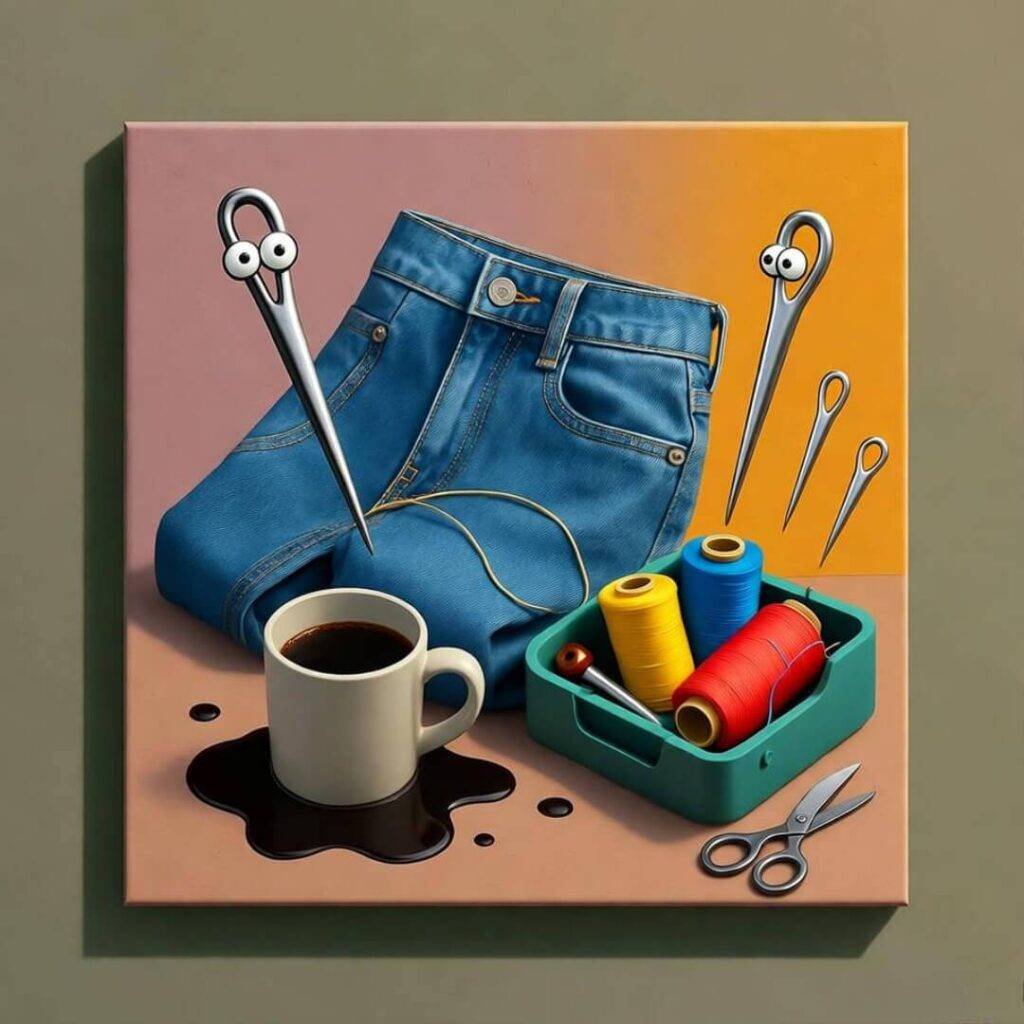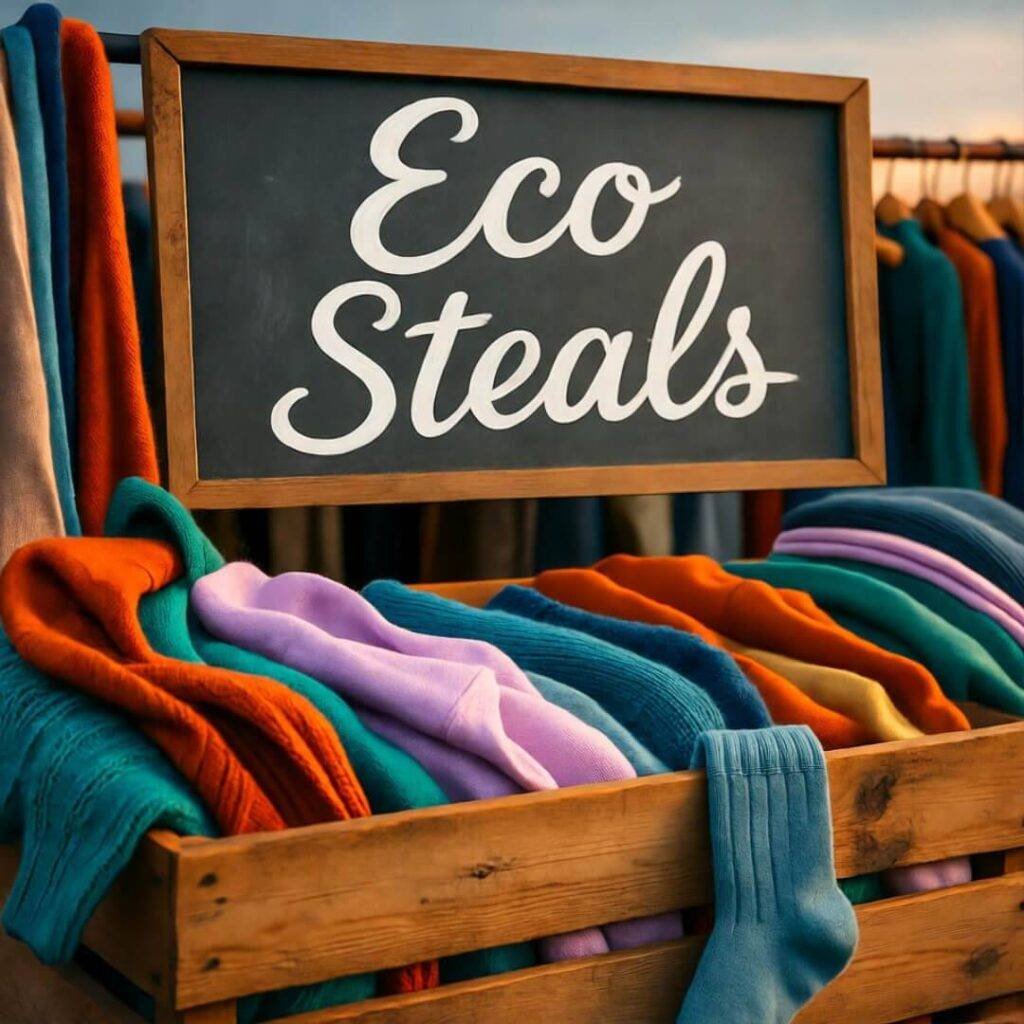Ethical fashion’s been stuck in my brain like a song I can’t shake, and I’m out here making a fool of myself trying to get it right. I’m writing this in my tiny Philly apartment, surrounded by dirty mugs and a pile of clothes I swear I’ll donate any day now. Like, ethical fashion sounds so cool, but I’m tripping over it like a drunk toddler. It’s not just buying “green” stuff—it’s figuring out who made my shirt and if I’m accidentally killing the planet. Here’s my dumb, messy journey, with all my screw-ups and tiny wins, straight from my broke, coffee-stained life.
My Big Thrift Store Flop
A few weeks back, I waltzed into a South Philly thrift shop, thinking I was gonna be an ethical fashion superstar. I’m in my crusty sneakers, scrolling X for “sustainable style tips” on my phone with a cracked screen. The place smelled like old books and bad decisions, with racks of everything from ugly 90s vests to some real sketchy corduroy. I was like, Yo, I’m saving the world! Then I dropped $20 on a shirt that fell apart in the wash. Polyester. Total rookie move.
That mess taught me ethical fashion’s not just grabbing cheap secondhand stuff. It’s about picking things that last, like cotton or linen, not plastic-y crap. Now I’m that weirdo sniffing clothes to dodge that mothball stench. Real talk: check tags and smell stuff. Saves you from my dumb mistakes.
Why Ethical Fashion’s Not Just for Hippies
Ethical fashion’s not some tree-hugger vibe—it’s about not being a jerk to the planet or the people making your clothes. It’s fair pay, eco-friendly fabrics, and brands that aren’t shady. I used to think it was all about wearing potato sacks and preaching about recycling, but nah, it’s way more real. Like, why support sweatshops when I can shop smarter? I’ve been obsessing over Patagonia—they’re super open about where their stuff comes from, which is rare as hell.
My Sustainable Clothes Struggle
I’m gonna be real: I’m trash at this ethical fashion thing sometimes. Yesterday, I almost blew my last $15 on a fast fashion dress ‘cause it was cute and I’m broke as hell. Temptation’s a jerk, y’all. I’m sitting here in my holey socks, chugging gas station coffee, wondering why sustainable clothes gotta cost so much. But I’m starting to get it—it’s like buying good takeout. One solid piece from a place like Eileen Fisher beats a pile of cheap tees that turn to rags.
Stuff I’ve learned, mostly by being an idiot:
- Go slow. You don’t need a whole new closet. Grab one thrifted thing or something sustainable.
- Check brands. Sites like Good On You spill the tea on who’s legit.
- Fix stuff. I tried sewing my jeans. It’s ugly as hell, but it’s mine, ya know?

Why Ethical Fashion Actually Matters
Ethical fashion’s not just about looking good—it’s about not making the world suck more. The fashion industry’s insane, churning out billions of clothes that end up in dumps. I saw a landfill near my place last summer, piled with old sneakers and shirts, and it hit me like a brick. Those $5 tees? They’re killing the planet. And the workers making them? Paid nothing, working in awful places. Reading about Rana Plaza made me wanna cry.
But it’s not all bad vibes. Thrifting’s like a treasure hunt, and brands like Everlane make it easy to shop without feeling like garbage. My favorite find’s a $7 wool sweater from a thrift shop that smells like a campfire. It’s got a story, and I’m all about it.
My Worst Ethical Fashion Screw-Up
So, I went to this “sustainable” pop-up in Fishtown, feeling like a green queen in my thrifted boots. Dropped $30 on a scarf I thought was handmade by some local. Nope. Total scam, mass-produced with a fake “ethical” label. I was so pissed I could’ve screamed. Now I’m that annoying person asking, “Where’s this from? Who made it?” If they dodge, I’m out. I stick to legit brands or thrift finds I can check myself.

Wrapping Up My Ethical Fashion Rant
So, ethical fashion’s messy, I’m messy, but it’s worth the chaos. I’m still learning, still tripping over my dumb choices, but every thrifted gem or janky stitch feels like a win. My apartment’s a disaster, my sewing’s a crime, but I’m trying, okay? Wanna jump in? Hit a thrift store, check a brand’s deal, or patch up that old hoodie. Tell me your wins or flops on X—I’m nosy and wanna know how you’re surviving this sustainable clothes madness.



